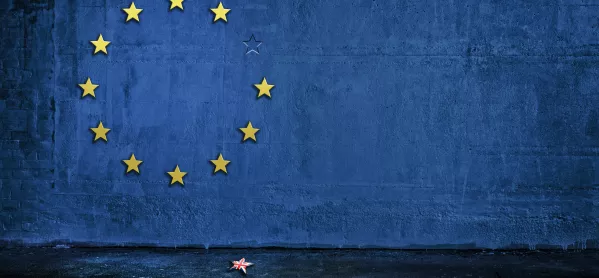- Home
- On Brexit Day, remember those who now feel less at home
On Brexit Day, remember those who now feel less at home

So here we are. Brexit Day. In a few hours, the UK will officially leave the European Union. It has been a long time coming – after all, it has been over three years since the country voted “leave” in the referendum.
And yet, for many – and I would count myself among them – this is a day they were not sure they would ever see. Such was the journey here, littered with so many twists and turns, protests and promises, deadlines and maybes, that it is hard to believe that there really is no going back. Brexit is happening.
Speaking to people here in Scotland this week there seem to be, by and large, two camps. In one, those who were saddened by the prospect of Brexit and felt this was something imposed on them against their will. The second group could be described as the “we voted for it, so let’s get this done” camp.
Need to know: Government publishes Brexit action plan for FE
More: Politics has become personal - look after your students
News: UK 'could develop alternative to Erasmus+ if needed'
Uncertainty prevails
What worries me about the second viewpoint is that, even after tonight, Brexit will be far from “done”. Despite the fact that it will have technically happened, no one knows by this point what Brexit will actually look like in practice. That is true for individuals – in particular those like me who live here with European citizenship, and those with British passports elsewhere in Europe.
It is also true, of course, for the UK’s FE and skills sector. Uncertainty prevails – and is likely to continue to prevail for some time – over whether the sector will manage to remain attractive to European students and staff once freedom of movement is replaced by some sort of more limited immigration system. The extent to which this could affect institutions will vary – but at some, the proportion of students who are EU nationals is significant. Edinburgh College principal Audrey Cumberford, for example, has pointed out that 20 per cent of its 28,000 students were EU nationals.
And in England, the Association of Colleges estimates that around 2 per cent of students in FE hold a non-British, EU passport. The same is the case for thousands of FE staff – some who came here to work in colleges, and others who made a life here and then found the sector. How staff recruitment will be affected by new immigration rules, especially rules surrounding a possible salary cap, is impossible to say.
And then there is the uncertain future of the Erasmus+ programme – which the government has said that it is keen to negotiate, but no commitments have yet been made. And there is also the European Social Fund – used by colleges to retrain and improve the skills of hundreds of thousands of people. A replaced programme, the Shared Prosperity Fund, has been mooted – but what exactly will it look like?
Do not abandon your humanity
But there is one more aspect of the political situation. The human element of all of this. Colleges are, before anything else, civic institutions that bring together thousands of humans, all with hopes and fears and feelings.
It was Auld Lang Syne that got me this week. Watching that song, entirely about friendship and entirely Scottish, sung in the European parliament as politicians held hands, went right through me to that part that holds all the emotions associated with “home” and “community”. I don’t mind admitting I shed a tear – and not for the first time in the last few months.
I also know it won’t have been the last time. There will be tears today for me and for many others in my position because it feels incredibly raw.
I constantly get told that Brexit is not personal, but to many, it has never been anything else but personal. Look at the language used, the poems quoted – how can it not be? This is not just politics, not just an economic equation that will one day show whether, bottom line, the UK ended up better or worse off outside the EU.
And again – this will not end today. Every disagreement in the negotiations, every right traded in for another will run the risk of evoking this feeling of raw sadness and despair for thousands of people you see in colleges every day.
So today, and tomorrow, remember that. We can, and will, disagree on whether Brexit was the right way to go, or on what it will mean – but that does not mean we should abandon our humanity. Or our compassion for those around us who today feel slightly less at home in the country they live in.
Keep reading for just £1 per month
You've reached your limit of free articles this month. Subscribe for £1 per month for three months and get:
- Unlimited access to all Tes magazine content
- Exclusive subscriber-only stories
- Award-winning email newsletters



